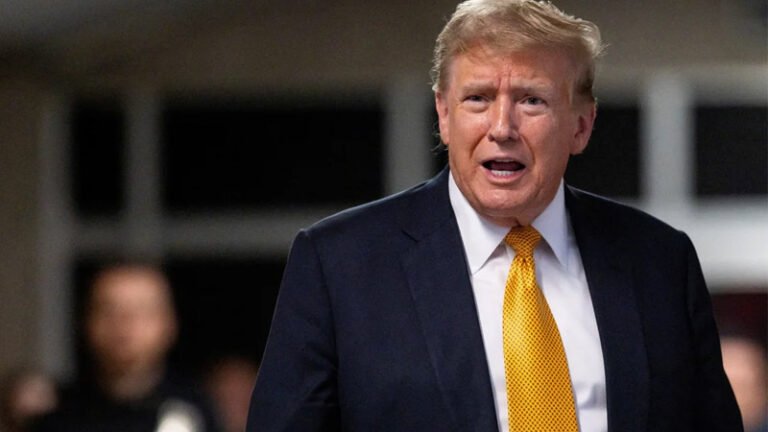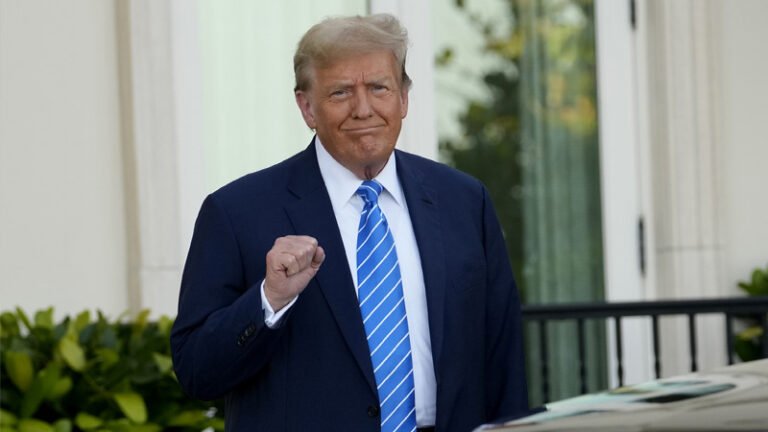None of the Fortune 100 CEOs, a group historically leaning Republican, have donated to former President Donald Trump’s 2024 reelection campaign, according to Yale School of Management Professor Jeffrey Sonnenfeld. This trend follows the pattern of the 2020 election, where only two Fortune 100 CEOs contributed to Trump’s campaign, and none did so in 2016. In stark contrast, 28 CEOs supported Mitt Romney’s 2012 campaign, and 29 backed John McCain in 2008. as reported by Fortune.
Sonnenfeld noted that this lack of corporate support for Trump represents the “lowest level of corporate support” in Republican Party history. Many top CEOs, with whom Sonnenfeld has closely worked, including leaders from PepsiCo, Ford, UPS, Verizon, and IBM, reportedly from Yahoo.”despise” Trump’s social and fiscal policies. These CEOs, typically 65%-70% Republican, are “either enthusiastically or reluctantly” inclined to vote for Biden, according to Sonnenfeld. He cited Melinda French Gates, David Ellison, and Reed Hastings among Biden’s supporters.
This stance counters recent reports suggesting that business leaders are rallying back to Trump after rejecting him in 2020. Despite Trump’s recent meeting with top executives where he promised further corporate tax cuts, Sonnenfeld argued that top CEOs view these cuts as inflationary without corresponding reductions in government spending. Stephen Moore, a close economic advisor to Trump, dismissed this concern, asserting that corporate tax cuts increase the value of the dollar and reduce prices.
Economic research shows that while Trump’s corporate tax cuts did boost business investment, the growth was insufficient to offset the cuts. The Congressional Budget Office estimates that extending these cuts, set to begin expiring in 2026, would cost $4.9 trillion over 10 years. The federal government’s publicly held debt currently stands at nearly $27.6 trillion, or approximately 108% of the GDP.
Sonnenfeld suggested that corporate tax cuts are more pertinent to the ultra-wealthy, naming venture capitalists David Sacks and Timothy Mellon as Trump supporters with a vested interest in such policies. In contrast, Biden’s antitrust policies and support for stronger capital gains taxes are of greater concern to CEOs, according to Sonnenfeld. report from CNBC, Despite some issues with Biden’s policies, Sonnenfeld emphasized that these are outweighed by the threats posed by a potential Trump presidency to inflation, economic stability, and democracy.
The aftermath of the 2020 election further alienated many top CEOs from Trump. On the night of November 6, 2020, when Trump prematurely declared victory, Sonnenfeld received numerous calls and texts from worried CEOs. This prompted him to organize a statement affirming Biden’s victory, which was supported by 94 CEOs in a Zoom call the next morning. The group, including leaders from Goldman Sachs, Johnson & Johnson, and Walmart, openly condemned Trump’s actions and later unanimously called for his impeachment following the January 6, 2021, riots.
Stephen Moore declined to comment on this group’s activities, maintaining that Trump remains the candidate for small businesses, while Biden is aligned with big business and Wall Street interests. Moore asserted that Trump’s economic policies are superior to Biden’s, suggesting that all businesses should view Trump more favorably in the upcoming election.





